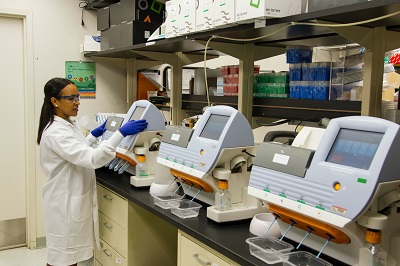After applying for Class 2A medical device registration in Russia with Roszdravnadzor (RZN), you must adhere to specific regulations and requirements to maintain compliance during and after the registration process. These regulations cover quality, documentation, communication, and post-market obligations. Below is a detailed overview:
1. Regulatory Framework
Familiarize yourself with the following key regulations governing medical device registration and market access in Russia:
- Federal Law No. 323-FZ: Establishes the general framework for healthcare regulations.
- TR CU 019/2011: The Eurasian Economic Union (EAEU) technical regulation on the safety of medical devices.
- GOST Standards: Set national standards for safety, quality, and performance, including:
- GOST R 51609-2000: General requirements for medical devices.
- GOST R 51524-2004: Labeling and information requirements.
- GOST R ISO 13485-2017: Quality management system for medical devices.
2. Communication with Roszdravnadzor (RZN)
Application Follow-Up:
Maintain communication with RZN during the registration process to address any inquiries, document clarifications, or additional requirements.
Submission of Additional Information:
Be prepared to submit supplementary documentation or technical data if requested by RZN, including additional test reports, translations, or clarifications.
Regular Updates:
Inform RZN of any significant changes to your device, such as design modifications, manufacturing changes, or labeling updates.
3. Quality Management Compliance
ISO 13485 Certification:
Ensure your manufacturing process complies with ISO 13485 or an equivalent standard. You must maintain an up-to-date certificate throughout the application process and beyond.
Audit Readiness:
Be ready for potential audits of your manufacturing facility, especially for foreign manufacturers. These audits may be conducted by RZN or their authorized representatives.
4. Testing and Clinical Data Submission
Additional Testing:
If RZN requires further testing during the review process, coordinate with accredited Russian laboratories to conduct the necessary evaluations.
Clinical Trials:
If your clinical data does not meet Russian requirements or lacks sufficient evidence, you may need to conduct local clinical trials as per ISO 14155 standards.
5. Documentation Management
Technical File Updates:
Keep your technical documentation, including the risk management file, clinical evaluation report, and manufacturing process documentation, updated and compliant.
Translation of Documents:
Ensure that all additional documentation requested during the review is accurately translated into Russian.
Registration Certificate Details:
Once the registration is approved, verify the details on the certificate (e.g., device name, model, intended use, and applicant information) for accuracy.
6. Labeling and Packaging Compliance
Russian Language Labeling:
Confirm that all labels, Instructions for Use (IFU), and packaging meet Russian regulatory standards, such as GOST R 51524-2004.
Final Approval of Labels:
The RZN may request to review the final labels and IFUs during the registration process to ensure compliance.
7. Timely Payment of Fees
- Application Fees:
Ensure all applicable fees for registration, testing, and expert reviews are paid on time to avoid delays in the registration process.
8. Post-Market Considerations
After submitting your application, begin preparations for post-market obligations:
Post-Market Surveillance (PMS) Plan
Develop a comprehensive PMS plan to monitor your device’s safety and performance once it enters the Russian market. This should include:
- Methods for tracking adverse events and non-conformities.
- Procedures for reporting serious incidents to RZN.
Adverse Event Reporting
- Establish a system for collecting and reporting adverse events in compliance with Russian regulations.
- Submit reports to RZN for any serious incidents within the required time frame.
9. Renewal and Modifications
While the registration process is ongoing, keep the following in mind for the future:
Registration Certificate Validity:
In Russia, medical device registration certificates do not require periodic renewal but must be updated if significant changes occur.
Modifications to the Device:
If any design, material, manufacturing, or labeling changes are made during the registration review process, notify RZN immediately and provide updated documentation.
10. Local Representation Requirements
For foreign manufacturers:
- Ensure your Authorized Representative (AR) in Russia remains compliant and responsive. The AR is responsible for handling communications with RZN, maintaining technical documentation, and ensuring post-market compliance.
11. Market Access Preparation
While your application is being reviewed:
Engage with Distributors:
Establish relationships with local distributors who meet Russian compliance requirements for handling medical devices.
Education and Training:
Prepare training materials for healthcare professionals or end-users to ensure the correct and safe use of your device.
.png)
.jpg)

.png)

.png)